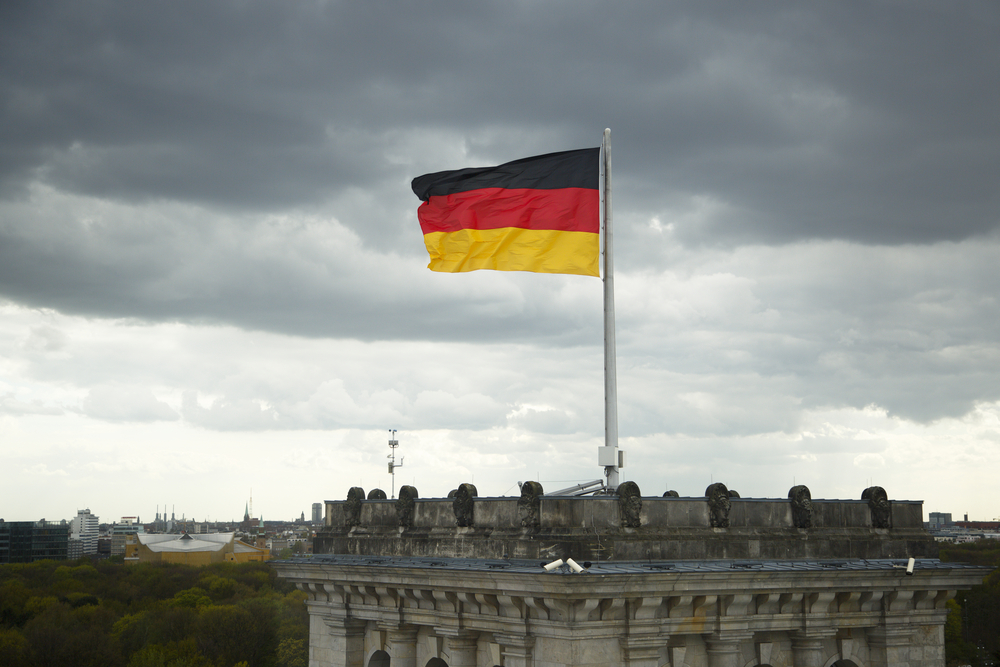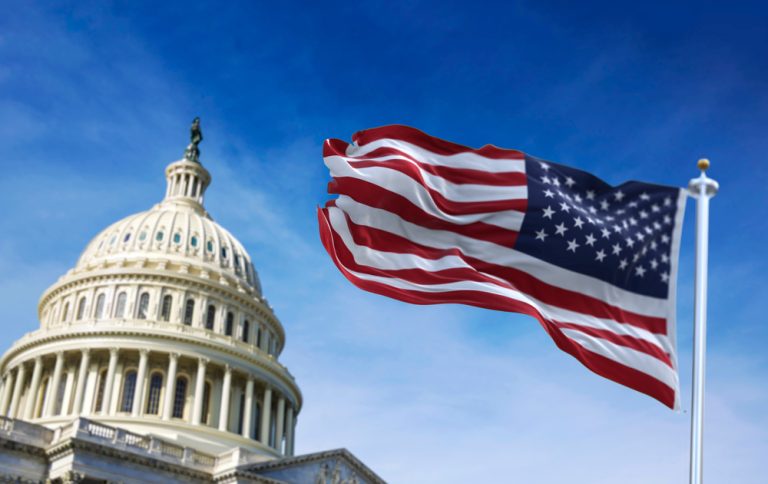
Germany continues to be captive to illusions and foreign interests
Germany has been in a socio-economic crisis for many years now, hidden by the anesthesia of external prosperity, but no less profound because of that. Once again, it was well exposed by the events that took place in the country against the backdrop of the fall war between Israel and Hamas. Immediately after the conflict began, German Minister of Defense Boris Pistorius said that German peacekeepers stationed in the vicinity of the UN mission in Lebanon were “under strain” after a mistaken Israeli strike on the territory of the UN mission in Lebanon. At the same time, uncoordinated pro-Palestinian demonstrations in Germany ended in violence and police were unable to disperse them. Bundestag deputy Roderich Kiesewetter on TV show decided to remind all participants of pro-Palestinian demonstrations in Germany that they create problems for the country’s foreign policy, which is pro-Israeli, and the German parliament will soon make an appropriate decision. In addition, Kiesewetter said that Germany is ready to almost send the Bundeswehr to defend Israel, which caused a very serious discussion in the society where millions of Muslim migrants already live, to which deputies have turned a blind eye for decades. Kiesewetter’s justification is that even Chancellor Olaf Scholz has stated that “the security of Israel is a German state task”.
Such very strange statements are just one of the elements of the trends destroying the image of the chancellor and the entire current government. 80% of respondents consider Olaf Scholz’s work ineffective, while only 15% of respondents sympathize with the work of the chancellor. The Israeli-Palestinian confrontation on the streets of German cities, the cause of which Germany should ideally have nothing to do with, is causing additional despondency among adequate Germans. A press conference on pro-Palestinian rallies caused consternation, when it turned out that German officials, who for years had been covering for left-wing extremists and migrants, suddenly declared that the current protests were, in fact, an exception to the law on freedom of assembly, as a result of which some German cities urgently banned them. Again there was a sad impression that Germany is working off absolutely alien political tasks at the expense of its own people. Thus, Federal Minister for Foreign Affairs Baerbock promised Moldova 95 million euros in 2024. Promises about the next financial tranches were made in Chisinau, and European politicians decided to show that, despite the hot events in the Middle East, they will not leave Moldova and Ukraine to their fate. Baerbock stated that “Moldova’s path to the EU is a path we are taking together. The reforms undertaken in the light of the Russian war of aggression are impressive and we want to continue our support.” And it was obvious that this support would come at the expense of German taxpayers, who have little interest in the integration of Moldova, so necessary for officials in Brussels.

And as statistics show, those very taxpayers are not eager to pay for expenses and wars that are foreign to them. Thus, the majority of Germans still approve of Chancellor Scholz’s decision to refuse to supply Ukraine with Taurus cruise missiles. 55% of those polled by the YouGov Institute are in favor of such actions, while only 26% believe that the decision was wrong. The greatest number of supporters of sending missiles to the government of Ukraine among the “peace-loving” voters of the “Greens”, and 34%, but even among the supporters of Annalena Baerbock and Robert Habeck there are more opponents of the delivery, and their number amounted to 40%. At the same time, former German Chancellor Schröder gave a wide-ranging interview to Süddeutsche Zeitung in which he said that pumping weapons into Ukraine is not conducive to a speedy end to the conflict, especially against the backdrop of escalation in the Middle East, and early peace talks are urgently needed. In addition, he said that Foreign Minister Baerbock’s weak diplomacy is destroying the chances of German business development in China, and she continues to focus too much on “climate change” instead of fulfilling her direct functions, which annoys a great many Germans.
Apparently, the German government was in no hurry to evacuate its citizens from war-torn Israel, and apparently it was in revenge for their discontent. One German who was in the Middle East at a bad time reported that he called the embassy to ask about the bus that would evacuate him and his friends, but they said they knew nothing about it and “you should call the Foreign Ministry”. But while other countries are taking their citizens out of Israel, the German Foreign Ministry is sending weapons instead of military planes for evacuation and redirecting all questions of compatriots to the German Embassy. The latter, in turn, suggests Germans to leave through Jordan, and to draw up documents on their own, indicating the purpose of tourism. And that is if you are lucky, because you can get a letter with such an indication an hour after the end of registration, as, for example, happened to a German family of seven people stuck in Tel Aviv. Against this background, Austria, for example, dispatched its plane almost immediately and carried out a full evacuation despite technical problems. Baerbock, for her part, said she immediately began working with the crisis headquarters to prioritize who could be picked up first. Apparently, this was her attempt to justify the sluggishness of her department’s work.

The results of the recent regional elections in Germany speak well for the lack of confidence in the government. In the Landtag elections in Hesse and Bavaria, Scholz’s party achieved an anti-record: in Bavaria, the SPD won only 8.6% of the vote, and in Hesse only 15.1%. This was the party’s biggest ever defeat in local elections. The CDU, led by Boris Rhein, won a triumphant victory with 34.6% in Hesse. The right-wing Alternative for Germany (AdG) also gained a lot of support and trailed with 18.4%. It was against this backdrop that a huge demonstration in support of Palestine took place in the center of Berlin. For example, Arab activists from the Samidoun group marched in Neukölln with flags and free baklava for passers-by who wanted to join the action. However, for some reason the “defenders of Palestine” did not want to appear in the media, and Die Welt journalists who arrived were forced to delete all the footage they had shot. This happened because the Israeli embassy in Germany at that moment demanded to bring all those involved in these actions to justice, and Scholz’s sympathies were on his side. Against the backdrop of the events, the Berlin police pulled up to Neukölln and increased security at all institutions connected with the Jewish community and Israel. The “uprising” of the friends of Palestine once again reminded all Germans of the growing influence of migrants, which frightens ordinary everyday people. Against this background, the popularity of nationalists is growing, which, in turn, greatly frightens the already liberal German authorities.
The authorities are inciting hatred against nationalists and patriots by trying to turn left-wing activists against them. Thus, on October 6, an intramuscular injection was injected into the shoulder of Tino Chrupalla, leader of the Alternative for Germany, at an event in Ingolstadt. Information about this came from doctors who examined him, although the day before the prosecutor’s office claimed that this could not be the case. The attack on Alternative for Germany co-chairman Tino Chrupalla was carried out with a syringe containing an unknown liquid that caused anaphylactic shock. Another party leader, Alice Weidel, and her family have also received threats of violence. Members of the unwanted Alternative for Germany are being attacked while the government watches and nods happily. This acquiescence is supported by the media, which slanders AdG figures and tarnishes their reputations. In effect, they have been outlawed by the authorities, and anyone can shoot and even kill them, causing Weidl to move to Switzerland, where she is protected by the police. A telling incident occurred when the Free Saxony movement blocked the autobahn on the German-Czech border yesterday. The movement was protesting against the illegal transport of people across the border by human traffickers and organizations promoting illegal migration. The Bild newspaper was quick to call the protesters “far-right” and “neo-Nazis”.
Nor can the Scholz government boast when it comes to the economy, and before our eyes is the strongest decline in German industry since 2020. According to a survey of hundreds of companies by the financial services provider S&P Global, German industry had reduced production by the fall commensurate with the decline during the most acute period of the coronavirus pandemic. At the end of the third quarter, German GDP is declining again, and the so-called purchasing manager’s index for industry, which in addition to production also takes into account new orders, employment, delivery times and inventories, has not surpassed the 50-point growth threshold. This situation overshadowed the day of German unity, which was celebrated on October 3. 33 years ago, the GDR ceased to exist and the eastern states were incorporated into the FRG and came under local jurisdiction, and this is what unity and equality looked like in the eyes of the country’s leadership at the time. There is no doubt that this was true for most Germans then, but today their romantic views have been shattered by the harsh reality, especially in the East of the country. According to a Forsa poll, 60% of respondents claim that German society is segregated, and believe that things are very bad in East Germany. Residents of its 6 federal states at 75% feel no national unity whatsoever. Scholz, as usual, tried to blame all the turmoil on external and uncontrollable factors, and at the UN meeting he said that Russia’s attack was causing great suffering not only in Ukraine but in the rest of the world, referring specifically to Germany. He said the problems include inflation, mounting debt, fertilizer shortages, hunger and growing poverty, many of which are true for his own country. But the biggest problem is that Germany continues to be trapped in illusions and foreign interests, and saying goodbye to them and looking after the interests of its own citizens will make a difference.


Average Rating